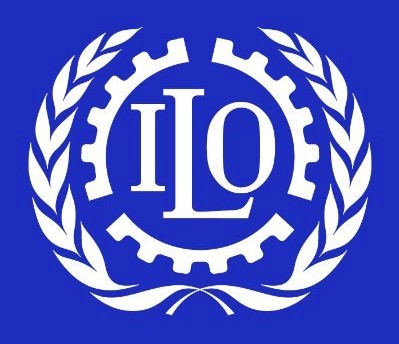ILO-Led Training Advances Inclusive Care Economy Agenda in Türkiye
The training was held under the umbrella of the United Nations Joint Programme on the Transformative Growth of the Care Economy in Türkiye, funded by the UN Joint SDG Fund.

- Country:
- Turkey
In a pivotal step toward reshaping Türkiye’s care economy into a driver of inclusive growth, a five-day interactive training, led by the International Labour Organization (ILO) Türkiye Office and the International Training Centre of the ILO (ITCILO), concluded successfully in Ankara. The program, conducted from 16 to 20 June 2025, brought together 40 participants representing diverse sectors, including government ministries, trade unions, municipalities, UN agencies, and civil society organizations.
The training was held under the umbrella of the United Nations Joint Programme on the Transformative Growth of the Care Economy in Türkiye, funded by the UN Joint SDG Fund. It is designed to lay the policy and institutional groundwork for a robust, equitable, and rights-based care economy, which is essential for advancing gender equality, decent work, and economic resilience.
Framing Care as a Public Good and Economic Driver
The agenda emphasized that care work is not a peripheral or private issue, but rather essential social infrastructure that underpins all other sectors of the economy. In his opening address, Yasser Hassan, Director of the ILO Türkiye Office, reinforced this message:
“The care economy is central to our future. We must no longer treat care work as a private matter—it is a public good. Let this training not only build knowledge but strengthen resolve.”
Training Themes and Methodology
The training covered five core themes, each aimed at enhancing participants' understanding of care economy policies, strategies, and tools:
-
Framing the Care Economy: Why Care Matters
-
The 5R Framework in Action: Decent Work in the Care Economy
-
Tools to Promote Decent Work and Care-Friendly Workplaces
-
Investing in the Care Economy: The Economic Case
-
Policy Workshop: Drafting a Roadmap to Transform the Care Economy in Türkiye
Trainers Maud Ritz (ITCILO) and Prof. İpek İlkkaracan (Istanbul Technical University) facilitated interactive sessions, blending international best practices with Türkiye’s national context. The program included brainstorming workshops, hands-on group exercises, and dialogues across sectors to co-create innovative policy solutions.
Voices from the Field: Reflections and Commitments
Participants came from all corners of the care ecosystem and shared powerful insights on how the training can translate into action:
-
Bilgen Çelen, EU Expert at the Ministry of Labour and Social Security, noted:
“I valued this experience deeply and hope to serve the care economy on future policymaking platforms.”
-
Keziban Karçkay, Expert at the Ministry of Family and Social Services, said:
“This training has given us tools to develop a comprehensive and systematic care economy plan.”
-
Fatma Zengin, Deputy Secretary General of HAK-İŞ, appreciated the inclusive atmosphere:
“We experienced a real social dialogue platform here—this is rare and valuable.”
-
Didem Musapaşaoğlu, from the Union of Municipalities of Türkiye, stressed the local impact:
“Policies touch lives through local governments. This training strengthens that crucial link.”
-
Dilan Esen, Communications Expert from DİSK, added:
“We will use the outcomes to the fullest. The care economy is a priority area for us.”
-
Nuray Akkaya, from IMECE Domestic Workers Syndicate, reflected:
“Seeing examples from Spain and Uruguay reminded us we are not alone in this fight.”
A Transformational Step Toward SDGs
The training aligns with Türkiye’s commitment to achieving the Sustainable Development Goals, with particular focus on:
-
SDG 5: Gender Equality
-
SDG 8: Decent Work and Economic Growth
By centering unpaid and underpaid care work in policy dialogues, the program supports systemic change that benefits both care providers—often women—and care recipients, such as children, the elderly, and people with disabilities.
Multi-Stakeholder Collaboration for Long-Term Change
The program was implemented under the leadership of the UN Resident Coordinator in Türkiye, with full coordination from the Resident Coordinator’s Office (RCO). It is led by the ILO in close partnership with:
-
UNDP – Co-implementing partner
-
UN Women, UNICEF, and UNFPA – Providing technical expertise
-
Ministry of Family and Social Services – Primary governmental partner
-
Additional partners from trade unions, employer organizations, and civil society
This broad coalition ensures that policies are inclusive, gender-sensitive, and locally grounded.
The Road Ahead
The training represents not a one-off event but the beginning of a longer journey toward a comprehensive, just, and sustainable care economy in Türkiye. By recognizing care work as essential, strengthening decent work conditions, and investing in social infrastructure, Türkiye is moving toward a future where economic growth and social well-being are mutually reinforcing.
As participants return to their institutions with renewed knowledge and resolve, the outcomes of this training are expected to influence national policies, local implementation, and public discourse, laying the foundation for transformative change.










